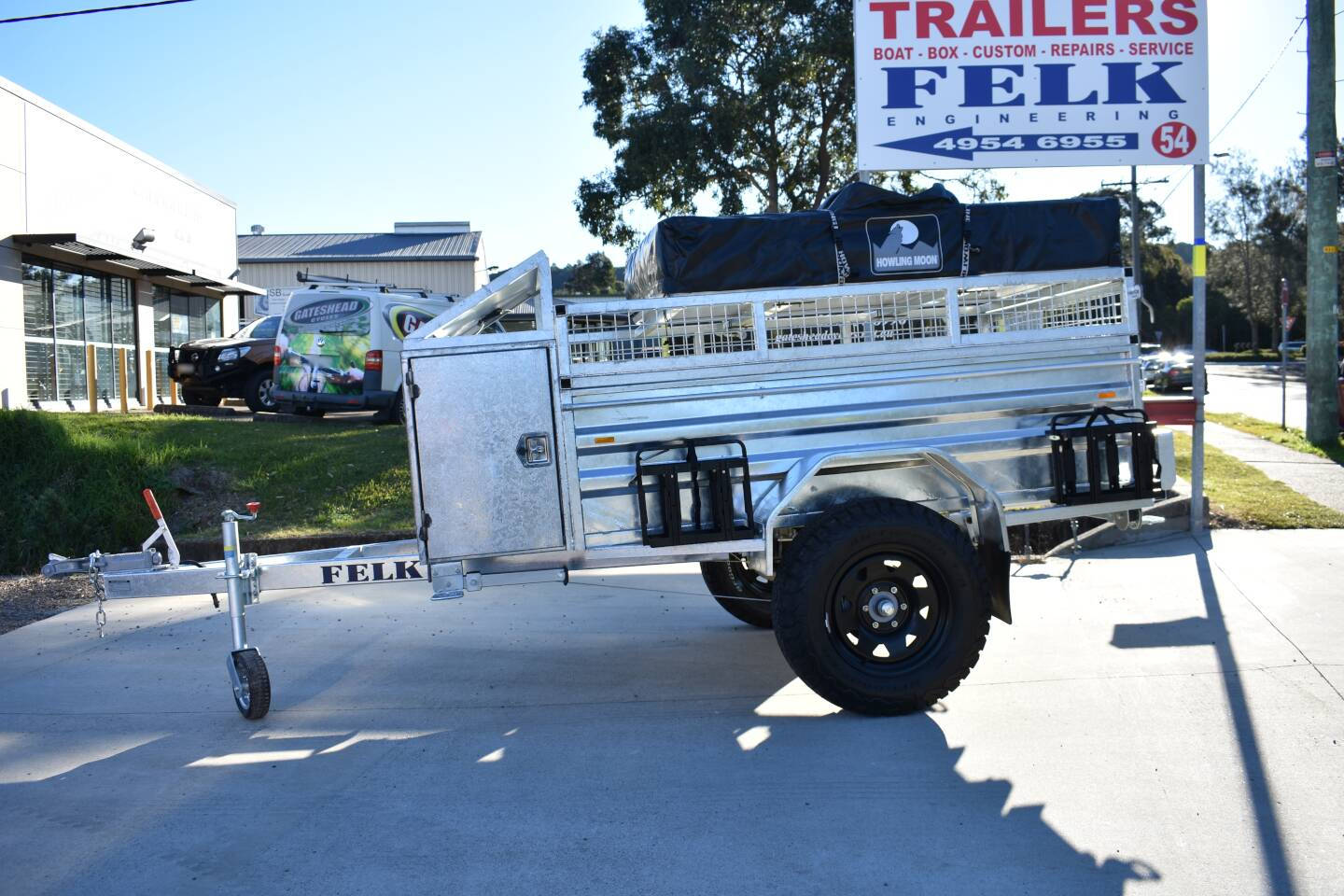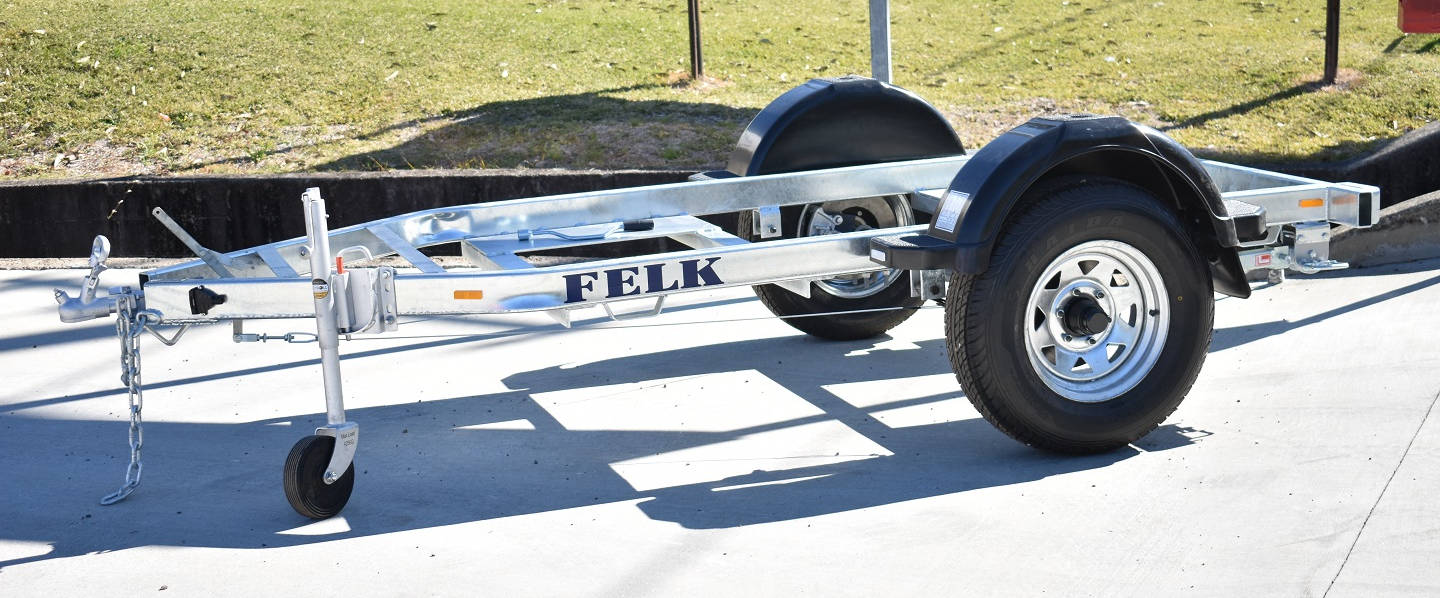This article provides a guide on how to choose the correct wheels for a trailer. To be clear, wheels mean both the rim + tyre. This article is suited for beginners with no prior knowledge of the topic.
Situations this article will help with
- People who have acquired a second-hand trailer
- People who have acquired a non-roadworthy trailer
- Upgrading GVM
- Upgrading wheel + tyre size for off-road use
This article describes how to assess your trailer and choose wheels accordingly.

Step 1 – How to know what size wheel to get
This may be simple in nature, as people are used to talking about wheels for their car.
Of course, trailers are a different vehicle altogether and do not perform in the same way a car does, plus they don’t come with a logbook that stipulates the correct size to get.
You may be able to fit all kinds of sizes, for example, a trailer that uses 14” wheels can probably fit 13” wheels. On the other hand, you might be able to fit 14” wheels onto a trailer designed to take 13” wheels, however, when loading the trailer, the mudguard might press against the tyre which will compromise safety due to tyre damage.

You want to pick the size that is optimal ie. using a wheel size to keep the trailer level. If the wheels are too big or too small, then the trailer won’t ride flat, and that’s inefficient.
Current NSW legislation requires a tyre compliance sticker to be placed on the left-hand mudguard (Kerbside, and this should detail the correct wheel size and tyre pressure for your trailer).
In the event there is no compliance information, we suggest measuring the diameter of the existing wheel and how it fits within the mudguard.
It is possible for trailer manufacturers to modify mudguards to accommodate for larger wheels. This is something we do when performing a GVM upgrade.
Step 2 – How to know what stud pattern to get
Different trailer manufacturers and models have different stud/bolt patterns for their hubs. Hubs are where you bolt the wheels onto.
Trailer manufacturers also adopt common stud patterns, so our clients have flexibility in terms of wheel choice.

Identifying the stud pattern is relatively easy.
There are two primary measurements to identify what stud pattern your wheels are.
- How many bolts are used. This can be determined by actually looking at the wheel hub. Most hubs and wheels will use 4, 5 or 6 studs.
- The Pitch Circle Diameter (PCD) is a measurement taken from one stud across the hub centre to the opposing stud. This is often difficult to measure as the centre of the hub sticks out further than the studs making and accurate measurement hard without the correct tools. Imagine a circle drawn between the centre of all the wheel bolts, then measure the diameter of that.
So, you would say eg.I’m after a 4 stud wheel with a 120mm PCD, or along those lines.
It’s also possible to replace your hubs, and this is the most efficient method when doing your bearings.
Step 3 – Understanding wheel & tyre ratings
Your trailer will have a GVM rating (weight + carrying capacity). As an example, most small trailers are 750 kg GVM.
So in the example above, you’d want to obtain 2x wheels rated at 375kg each or more.

Step 4 – Choosing between alloy and galvanized steel rims
So, what’s the difference between alloy and steel rims?
Alloy rims are lighter for the same dimensions.
There’s a bit of a misconception that people “should get alloy because alloy offers better rust-proofing than galvanised steel”. This is an untruth because most alloy wheels are not made from marine grade alloy.

Golf Cart Trailer
In our experience, alloy wheels (non-marine grade) actually corrode quicker than galvanised steel. This occurs when water becomes trapped between the rim and tyres at the bead & valve. The alloy oxidises and expands creating a great deal of difficulty when replacing tyres & fixing punctures. The bead will not seal due to the corrosion and therefore will leak air pressure.
For this reason, FELK has chosen to stock only galvanised steel wheels for spare parts.
Need some new wheels?
Please feel free to browse our parts section, contact us or just bring your trailer into our workshop.
